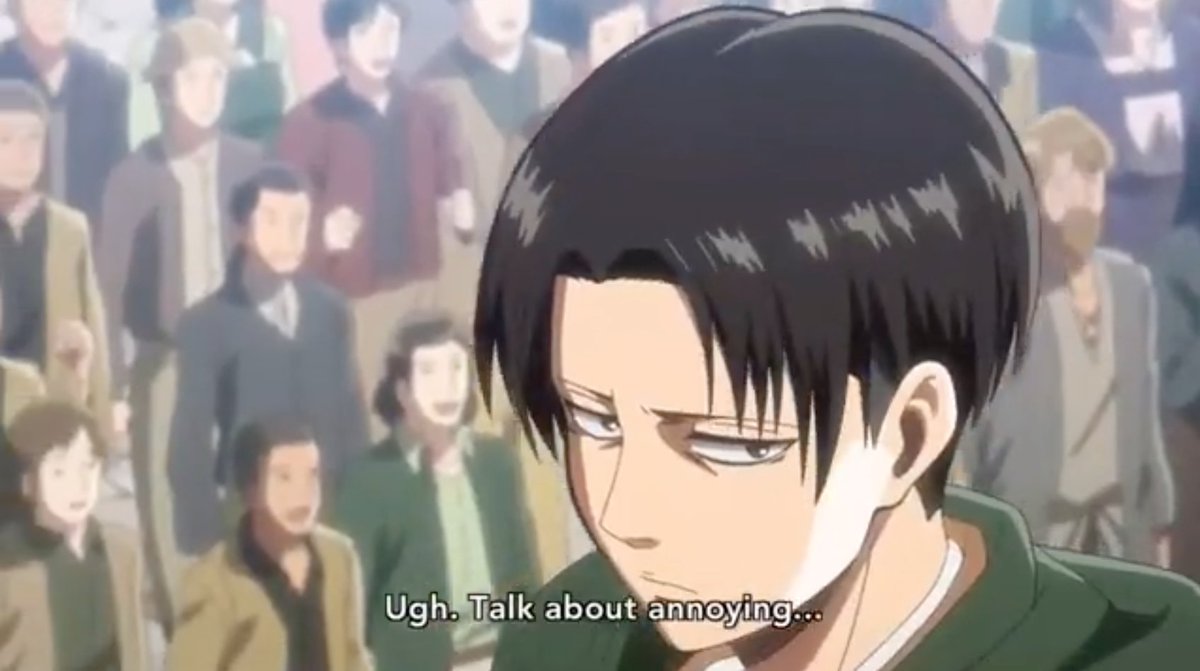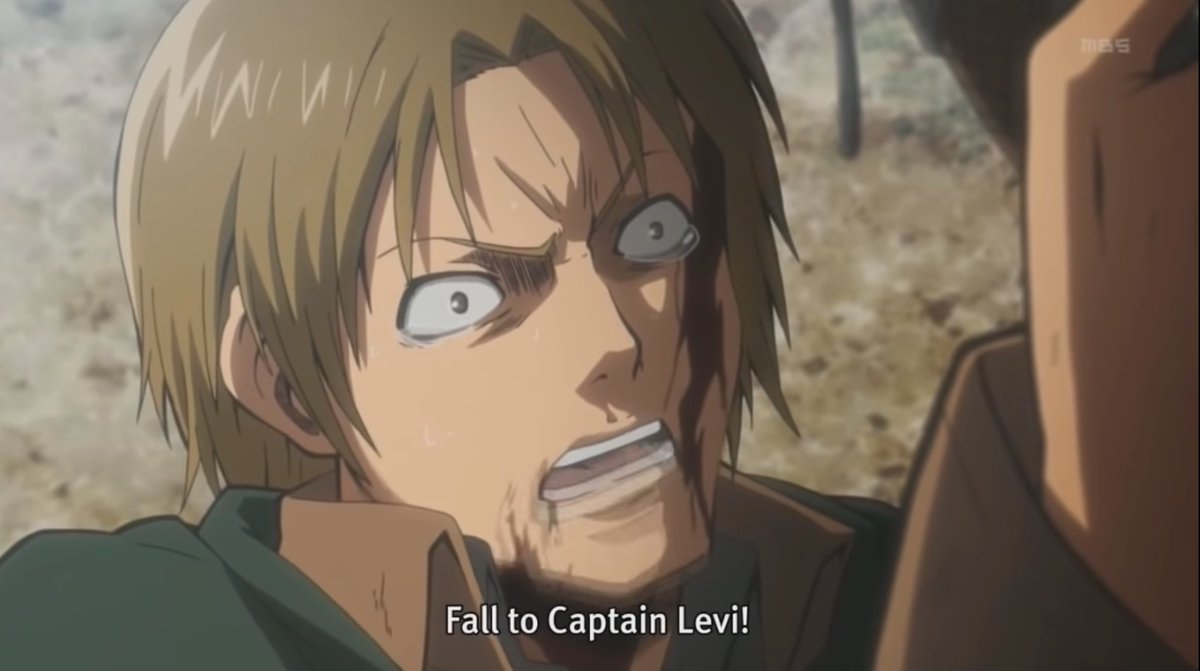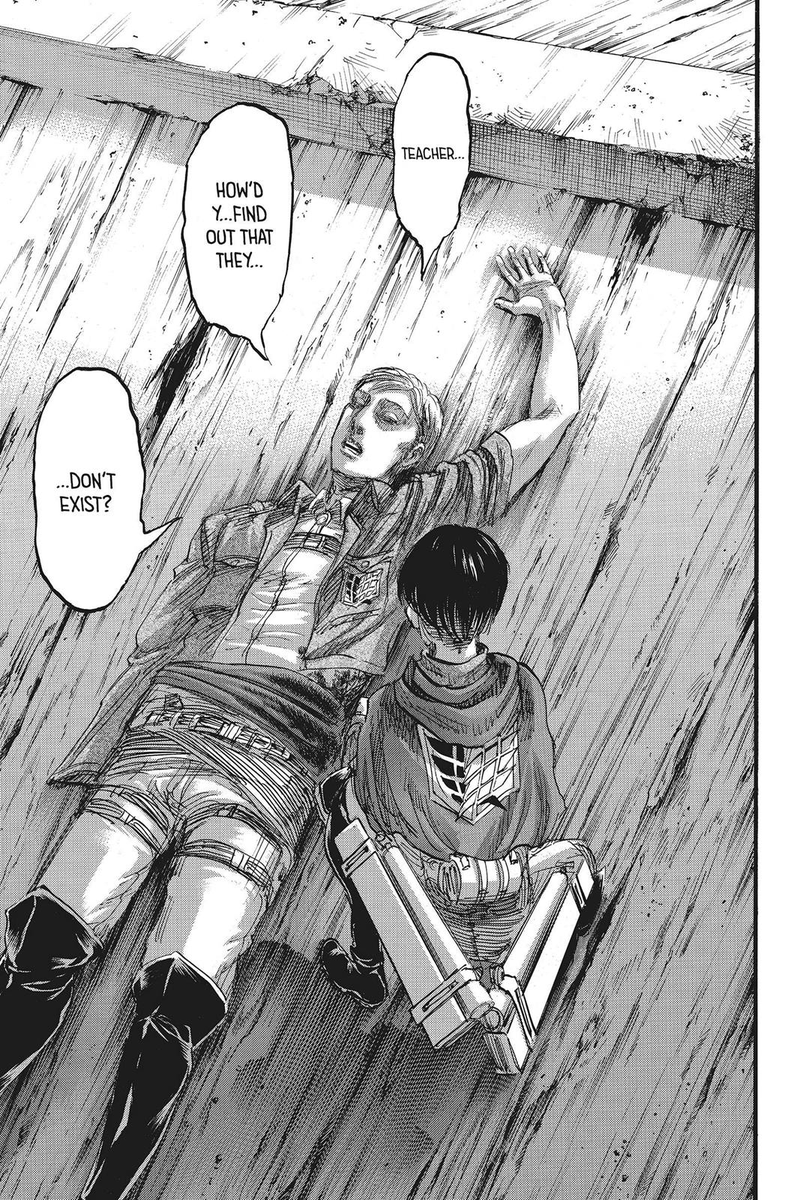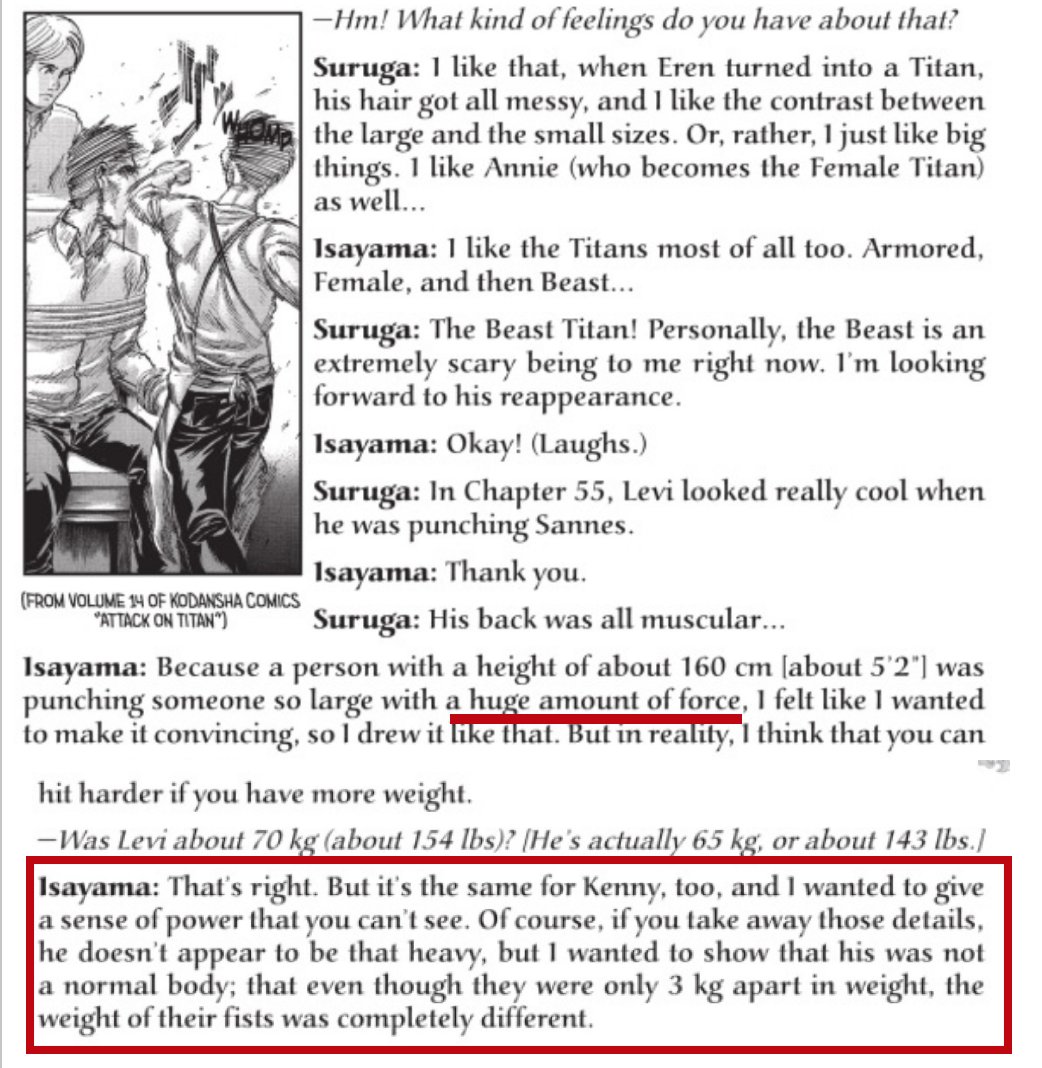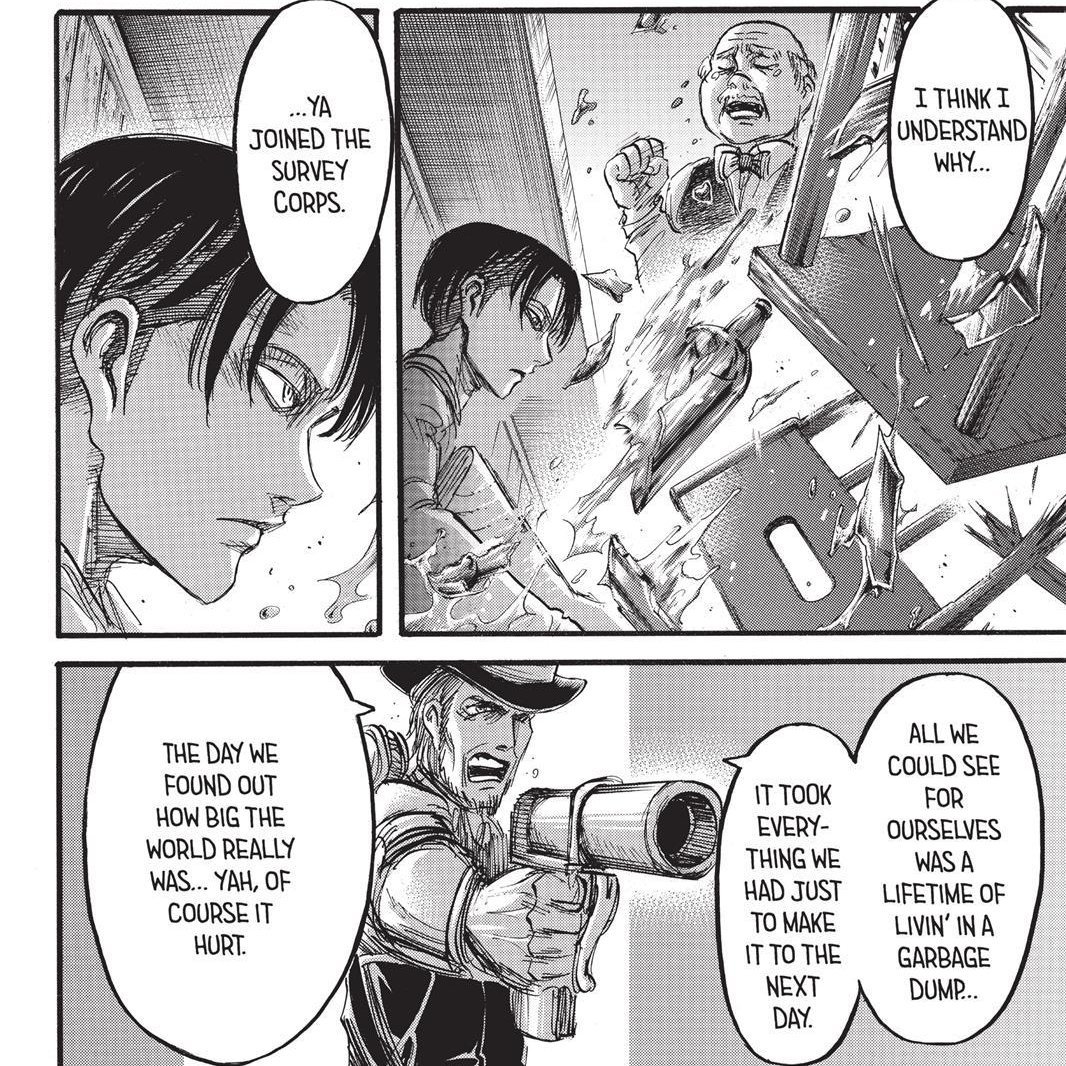Levi & His Supposed Winning Track Record
Analysis exploring the inherent tragedy of Levi's story, why that's the reason he even works for readers, and how fitting his ending is as a result
#aotmangaspoilers
Analysis exploring the inherent tragedy of Levi's story, why that's the reason he even works for readers, and how fitting his ending is as a result
#aotmangaspoilers
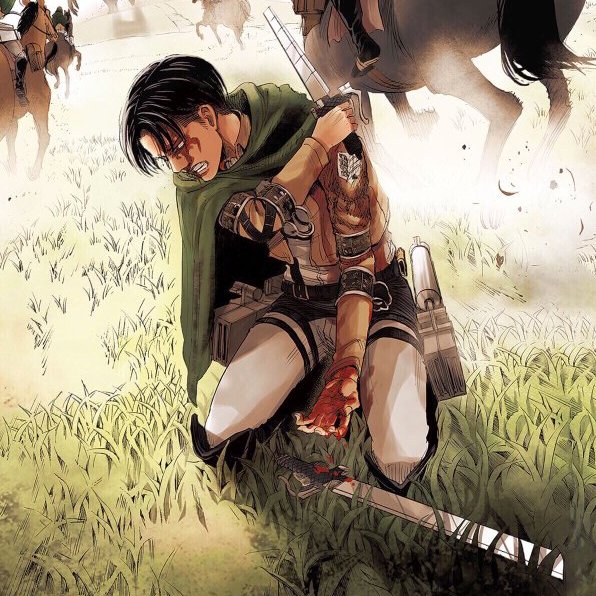
Introducing a character as "the strongest" is a tough sell- hyping a character up is frustrating & a let down if he fails to live up to expectations but also if he always wins, then he's unrelatable & boring
It's not relatable to be the strongest so it's not emotionally resonant
It's not relatable to be the strongest so it's not emotionally resonant

This is why underdogs are often popular in fiction, we feel for them. Who relates to a too "perfect" character?
So how to make a character like Levi work, have a moving character arc and generate an interest in him as a character and not just some superficial, fleeting charm?
So how to make a character like Levi work, have a moving character arc and generate an interest in him as a character and not just some superficial, fleeting charm?

You do what Isayama does:
1. You make his tragic, dark backstory not just be a footnote that made him ~edgy~ but actually gives him flaws
2. You make it so for all his good intentions, his strength, and winning fight record- he still always loses
1. You make his tragic, dark backstory not just be a footnote that made him ~edgy~ but actually gives him flaws
2. You make it so for all his good intentions, his strength, and winning fight record- he still always loses

#1 I won't go into here but wanted to note that Levi has real flaws that create issues for him & stem from being raised by an infamous serial killer who abandoned him & couldn't give him affection in a poverty-ridden, criminally-infested hellhole that was a daily fight to survive 





Why Levi works as a character & why his ending is so fitting is really #2.
Levi being the strongest is more of a burden and duty to him than something that lets him get what he wants
Because within the story, Levi always wins, but he also never wins


Levi being the strongest is more of a burden and duty to him than something that lets him get what he wants
Because within the story, Levi always wins, but he also never wins



The Aftermath of Victory
Whenever Levi has some badass fight scene, beats unbeatable odds, comes out victorious- the focus isn't on Levi having won, it's on what it cost Levi and/or how little that victory means.


Whenever Levi has some badass fight scene, beats unbeatable odds, comes out victorious- the focus isn't on Levi having won, it's on what it cost Levi and/or how little that victory means.

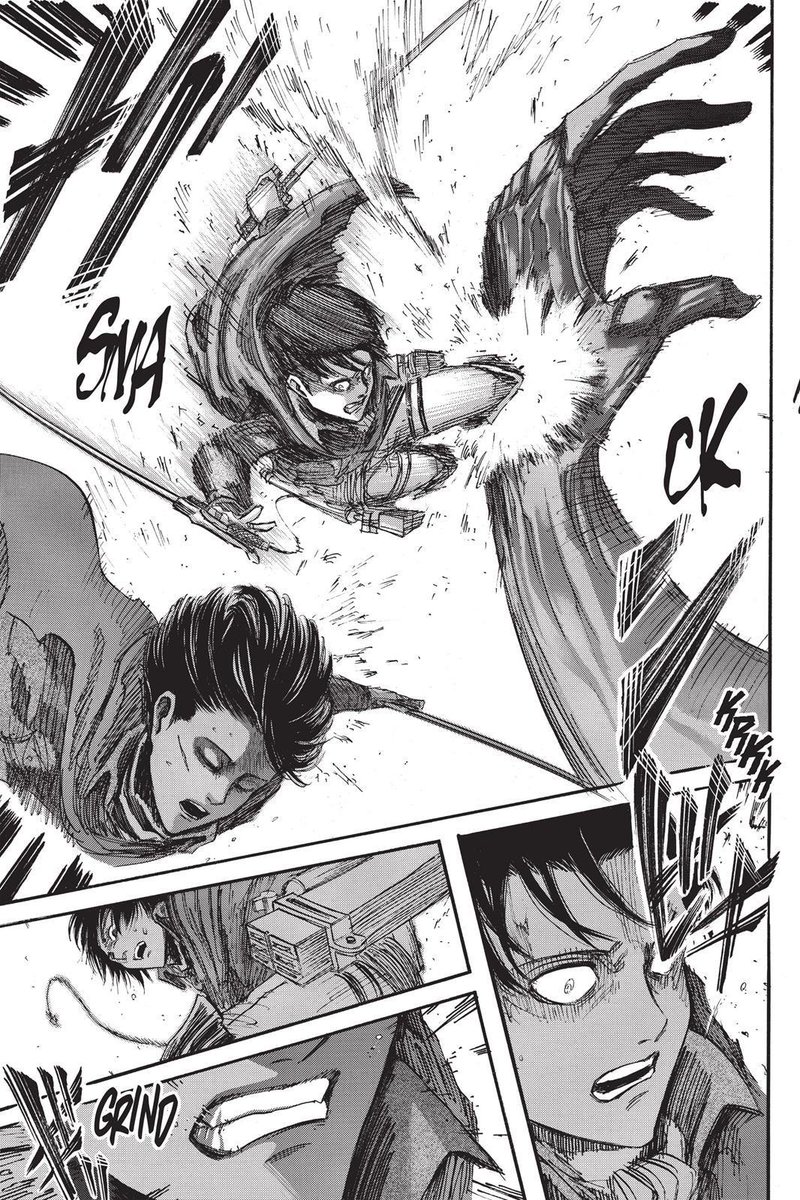

Great example is Levi's first fight with Zeke. He beats crazy odds to take out Zeke, who had been presented as this huge threat Levi had no hope of beating (Reiner explicitly says that), but Levi doesn't get to celebrate
Definitely looks like he's enjoying his decisive victory:
Definitely looks like he's enjoying his decisive victory:
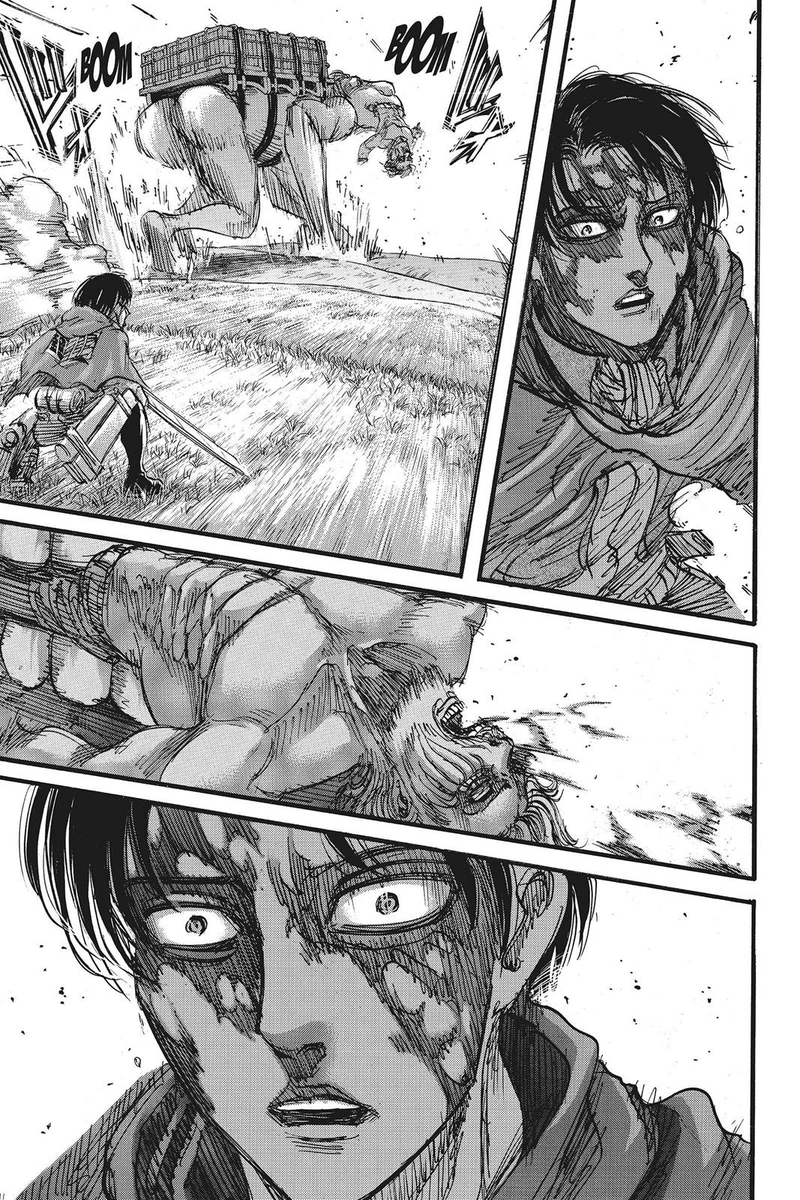
Following his immediate victory- destroying Zeke in a very one-sided fight- Levi's not happy because all he's thinking, & all that the manga fixates on, is the bodies strewn about & Levi imagining if he can save Erwin or anyone else, looking distraught & unsatisfied with victory 

And then of course Pieck intervenes, and Zeke slips away. Then Levi beats the unbeatable odds again killing 20 or so titans with limited supplies to chase him, but gets stopped by Eren and serumbowl. 

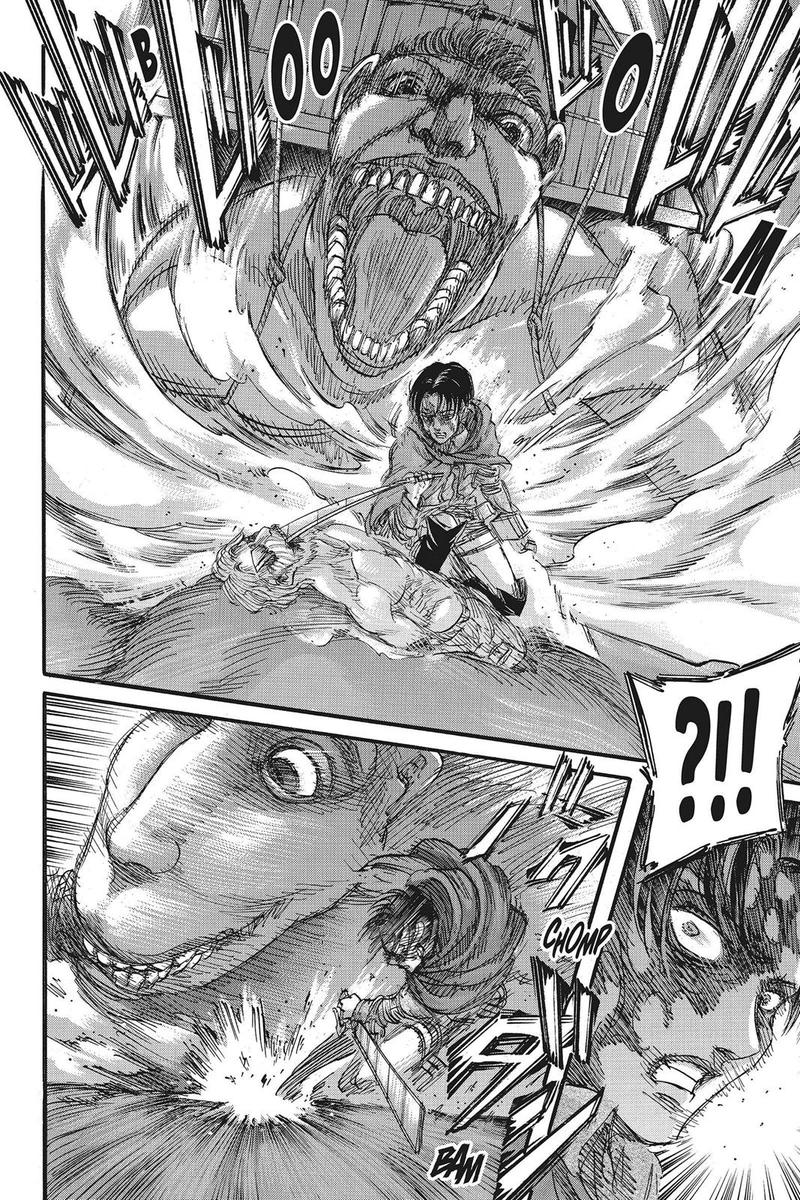

Return to Shiganshina leaves Levi with a complex of guilt, feeling like he wasted the sacrifices of Erwin & the recruits because he didn't kill Zeke - so was it really a win? 



His next real fight with Zeke follows a similar trend. Levi absolutely destroys Zeke, Zeke never had a chance, but it meant Levi had to kill all of his squad who he cared about and gives him more things to feel guilty about 







Moreover, then the situation where containing & transporting Zeke without a squad leaves an opening for a suicide bombing that leaves Levi very injured and allows Zeke to meet with Eren, aka start the Rumbling (or more things for Levi to feel guilty about) 

Zeke gets to continue his plans unharmed despite having no real reason to be even alive while Levi gets debilitating injuries.
Levi consistently outclasses all his opponents, especially Zeke, with decisive victories and yet he still never seems to win in the end

Levi consistently outclasses all his opponents, especially Zeke, with decisive victories and yet he still never seems to win in the end


The Last Man Standing
This is shown to us over & over because Levi is usually the last man standing, the other side of being the strongest is outliving everyone else and also never being strong enough for it to protect those he wants to protect



This is shown to us over & over because Levi is usually the last man standing, the other side of being the strongest is outliving everyone else and also never being strong enough for it to protect those he wants to protect




1. In No Regrets, Farlan & Isobel, his first found family, die & while he effortlessly destroys the titans that kill them, they're still dead & he can't save them.
2. Levi watches his mother & Kenny die. All his family die in front of him while he's helpless to save or help them



2. Levi watches his mother & Kenny die. All his family die in front of him while he's helpless to save or help them


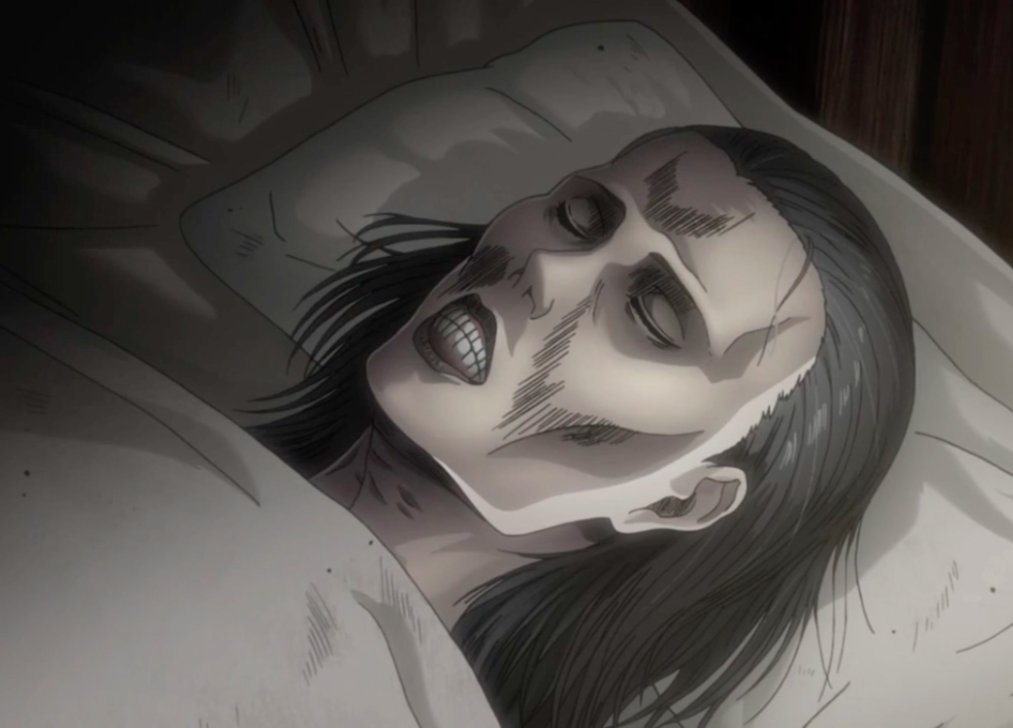

3. The first Squad Levi all die & he finds their mangled bodies
4. He asks Hange to borrow Hange's squad members besides Moblit, people (or at least Nifa) he's implied to have relationships with & they all die in front of him, something he thinks of as what he was responsible for



4. He asks Hange to borrow Hange's squad members besides Moblit, people (or at least Nifa) he's implied to have relationships with & they all die in front of him, something he thinks of as what he was responsible for


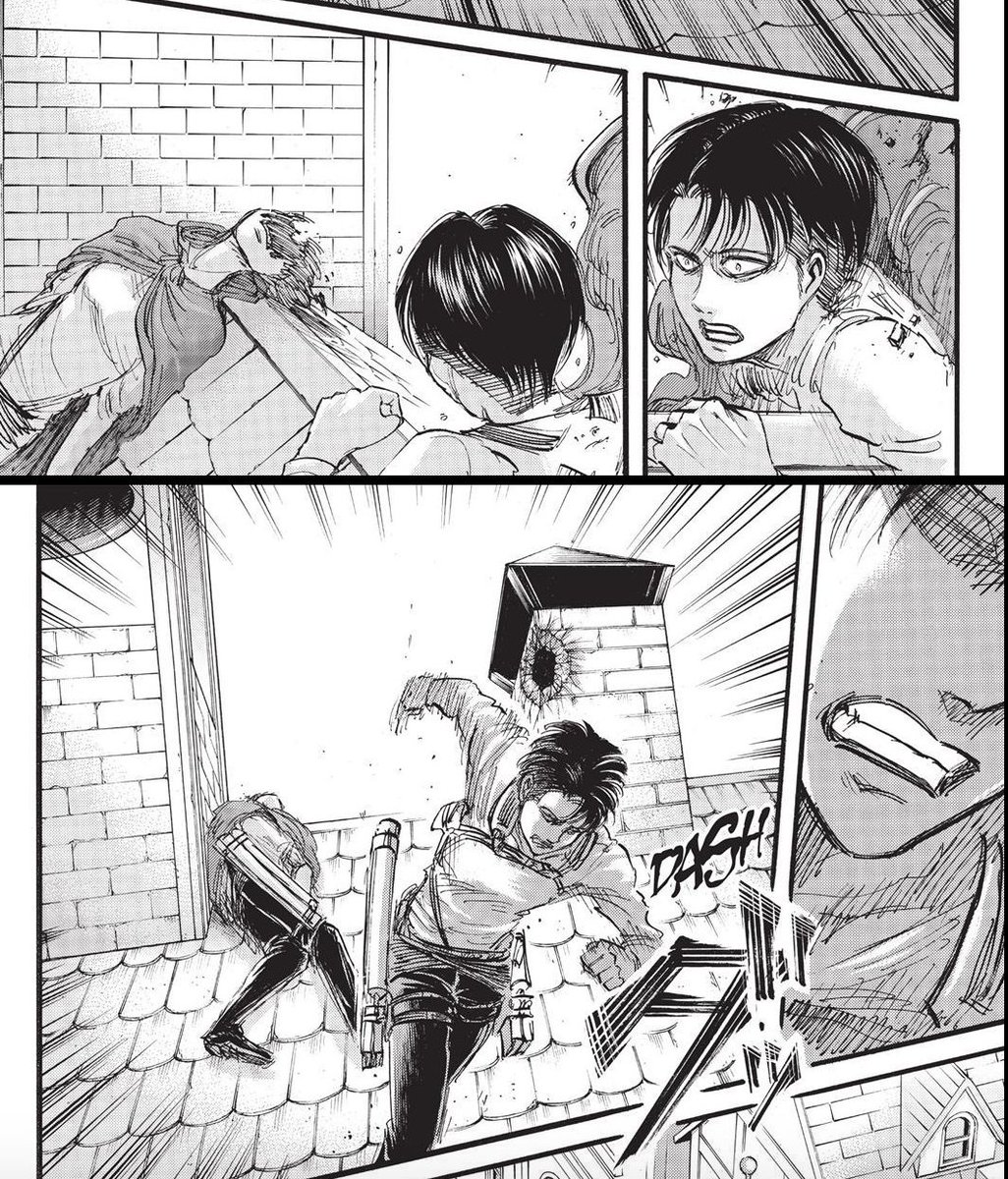

5. He (& Floch) are the only survivors of their side of the Wall in RtS; Levi feels responsible for all those deaths, even apologizing as they charge
6. His squad that guarded Zeke all die; he has to kill them himself & he blames himself for allowing the wine that doomed them


6. His squad that guarded Zeke all die; he has to kill them himself & he blames himself for allowing the wine that doomed them



7. We begin AoT with many established veteran soldiers & Paradis military leadership - all but Levi are dead by the end
Levi also repeatedly orders "don't die" to subordinates who die soon afterwards, like Sasha & the RtS Survey Corps


Levi also repeatedly orders "don't die" to subordinates who die soon afterwards, like Sasha & the RtS Survey Corps



As Levi himself says: The path to victory is "littered with the corpses of enemies and comrades" and all those struggles have brought them to a "farce".
All his "victories" are pyrrhic.

All his "victories" are pyrrhic.


Even looking at his overall track record as the best titan killer- what does he have to show for it?
How great is it to be the best titan killer when that translates to just killing tormented victims turned titans? It's just another thing to feel bad about in the end
How great is it to be the best titan killer when that translates to just killing tormented victims turned titans? It's just another thing to feel bad about in the end

Levi's Ending
Other characters lose their lives, but Levi is the worst off of all the major characters that live. He's the only one of the Alliance to sustain permanent injuries. He's the one of the major characters who loses all his closest friends & family that he began with

Other characters lose their lives, but Levi is the worst off of all the major characters that live. He's the only one of the Alliance to sustain permanent injuries. He's the one of the major characters who loses all his closest friends & family that he began with


Ch139 highlights these tragedies.
Post-Rumbling shows several mourning shots with the characters, but one thing that's obvious when you compare is that the others aren't alone.
Mikasa and Armin grieve Eren together, Jean and Connie grieve Sasha together- & then there's Levi:
Post-Rumbling shows several mourning shots with the characters, but one thing that's obvious when you compare is that the others aren't alone.
Mikasa and Armin grieve Eren together, Jean and Connie grieve Sasha together- & then there's Levi:
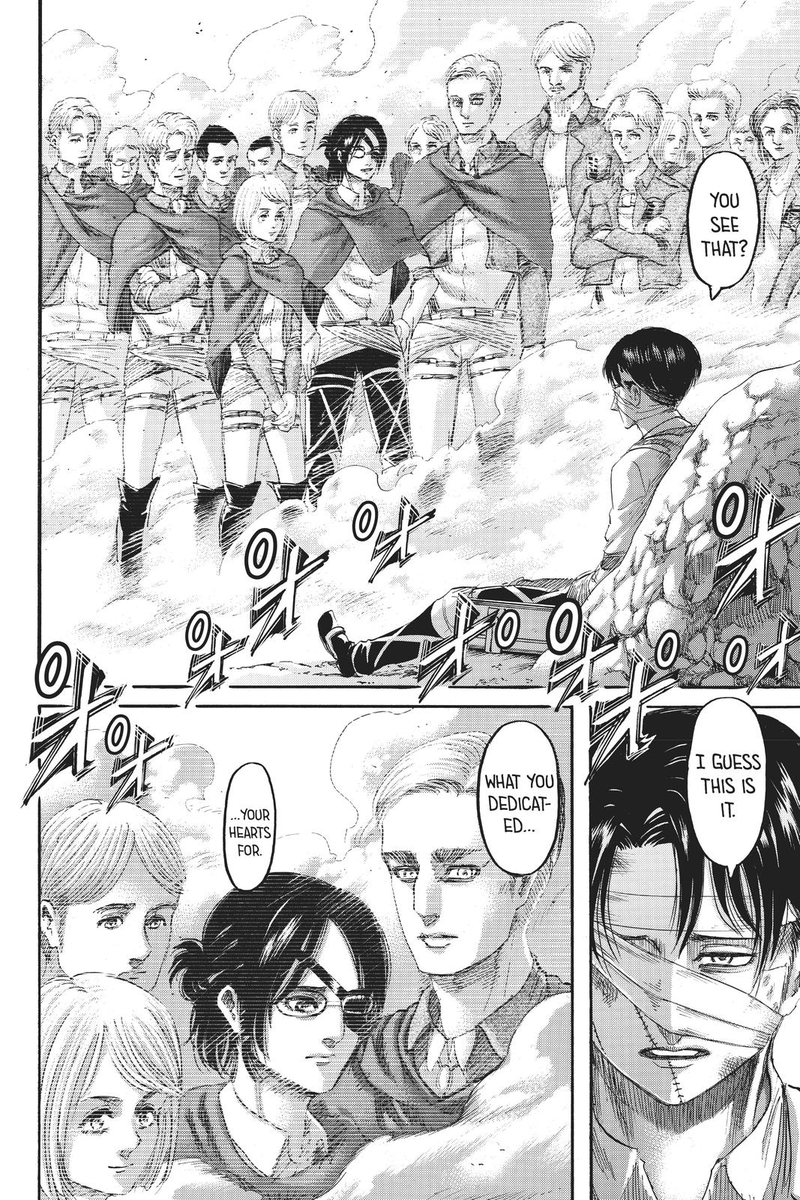
While his goodbye to the OG Scouts also doubles down on some of the themes, it's visual storytelling that shows all Levi's lost-
He sheds a tear, alone & unable to stand because of the physical damage he's endured, while the vision of his dead comrades disappears from the world
He sheds a tear, alone & unable to stand because of the physical damage he's endured, while the vision of his dead comrades disappears from the world

He's finally succeeded in helping bring about a world without titans like he promised in his introduction, but all the people he dreamed of that world with are gone.
It really does double down on Levi's overarching character theme- winning but at what cost?
It really does double down on Levi's overarching character theme- winning but at what cost?

That's one of the reasons why Levi is such an important character thematically
AoT challenges you to accept losses & pain as an unavoidable part of life & keep fighting for what you believe in anyway
It also challenges you to find the beauty in a cruel world to keep surviving



AoT challenges you to accept losses & pain as an unavoidable part of life & keep fighting for what you believe in anyway
It also challenges you to find the beauty in a cruel world to keep surviving




It's especially important for Mikasa specifically; Mikasa's biggest fear is losing her loved ones & family. And multiple times, she's asserted her strength when that's risked or comes up.
Levi's constant losses almost exist as a warning in her narrative of this inevitability

Levi's constant losses almost exist as a warning in her narrative of this inevitability


Moreover, AoT stresses physically defeating & dominating an enemy won't solve all your problems.
Power and strength, what Ymir as a slave & Eren coveted when they felt helpless & later gained unlimited, godlike amounts of, won't bring happiness or allow you to get all you want


Power and strength, what Ymir as a slave & Eren coveted when they felt helpless & later gained unlimited, godlike amounts of, won't bring happiness or allow you to get all you want
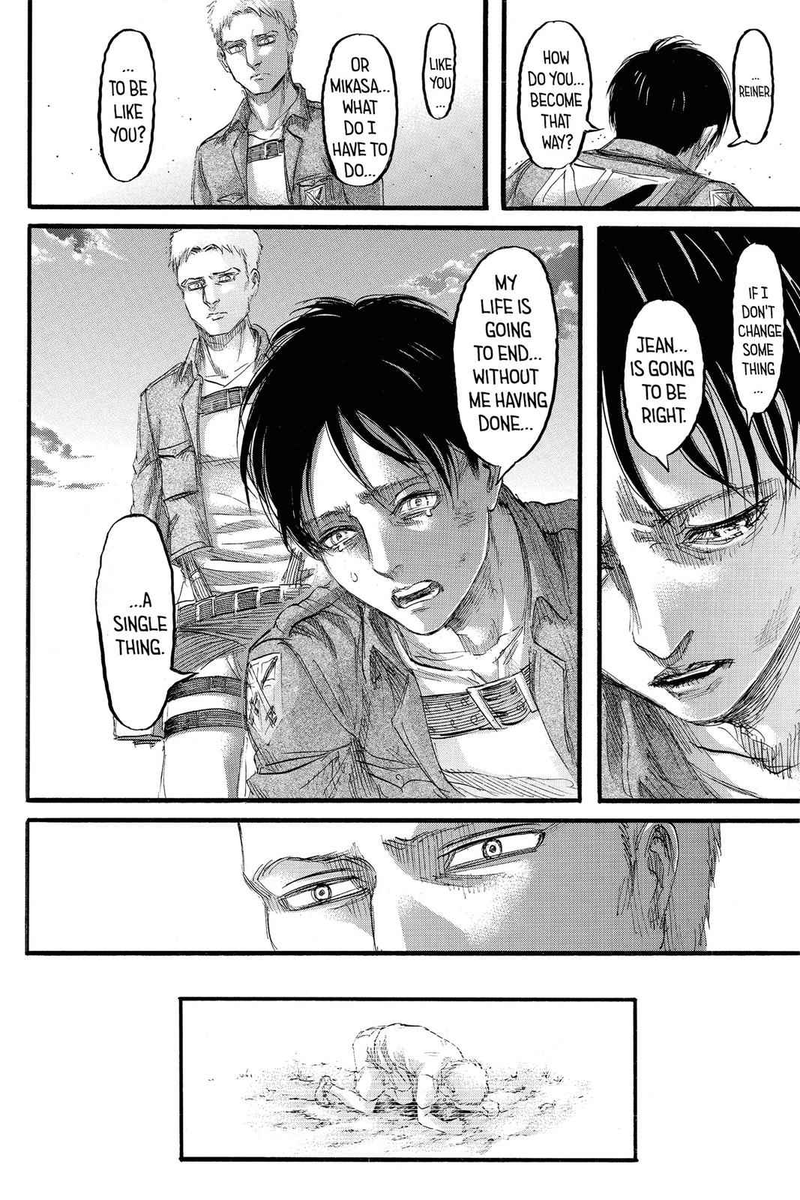


You can't save everyone, power only does so much
Even the strongest must suffer the losses of life and somehow find the inner strength to fight on despite the pain anyway - that's the true strength
Even the strongest must suffer the losses of life and somehow find the inner strength to fight on despite the pain anyway - that's the true strength

• • •
Missing some Tweet in this thread? You can try to
force a refresh





